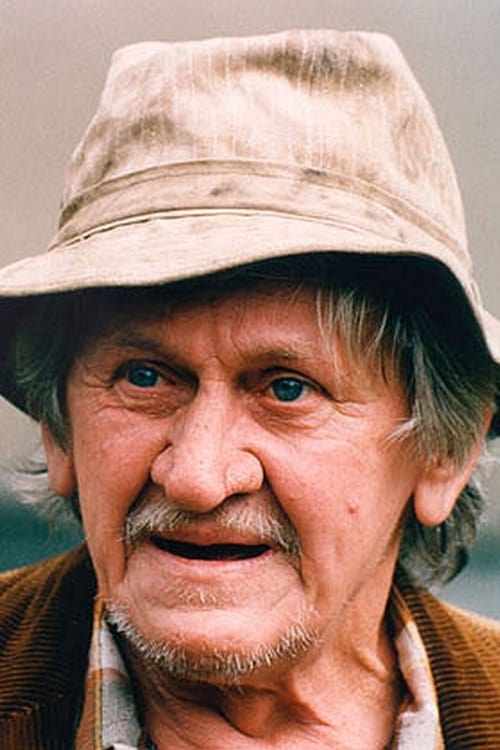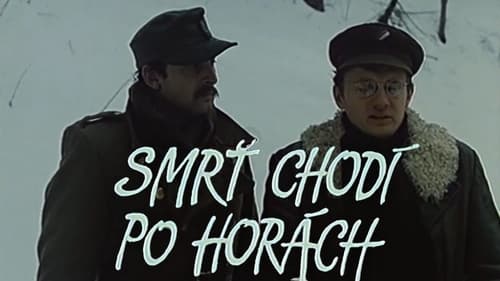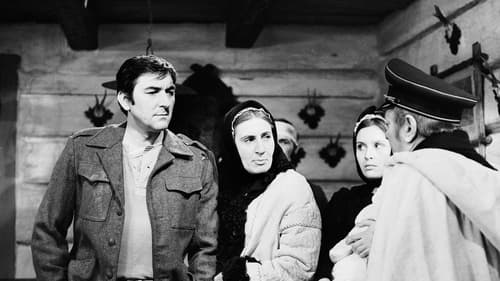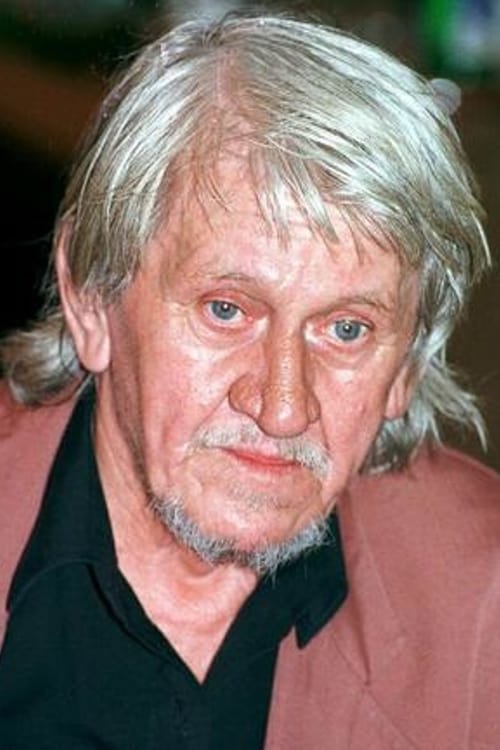
Július Vašek
Nacimiento : 1926-12-29, Nove Zamky, Slovakia
Muerte : 2009-05-01
Historia
Július Vašek (* December 29, 1926, Nové Zámky - † May 1, 2009, Bratislava) was a Slovak actor.
After finishing acting at the Bratislava Conservatory in 1954, he made his debut with the film Wooden Village, which was an adaptation of František Heček's novel. He has acted in more than fifty films. He mostly portrayed negative characters - nervous or emotional types of men in borderline situations, e.g. as well as the characters of guardsmen, German soldiers and, paradoxically, partisans in films from the Second World War, where his acting skills were most evident. Unforgettable was his performance in the films Captain Dabač, Romance for flugelhorn and Pacho, Hybské zbojník. However, he was most famous for the character of Prašivec in Martin Hollé's film Copper Tower and especially Orlie Feather. In the 1970s, he was at the peak of his acting career. Undoubtedly, one of the most important tasks of his acting career is the portrayal of the mysterious character of Karol Neuman in the Czech film The Case of the Dead Man, in which he played the main role. He was also excellent in the character of Pančuch in the film Red Wine. He got his last chance in the Czech sci-fi film The Last Move.

Gabrielin otec

After five years of hard work in America Juraj Hordubal (Anatoliy Kuznetsov) returns back home. He is looking forward to his wife Polana (Libuse Geprtová) and his little daughter Hafie. The family and the village welcome him with hesitation. Everybody believed that Juraj died in America because Polana stopped receiving money from him already two years ago. Polana's farm was prospering first of all thanks to the young stable boy Stepán (Sándor Oszter). Men in the pub first indicate and then say to Juraj directly that Polana has been unfaithful to him with Stepán.

The story of a young lawyer who finds herself in a difficult situation when she encounters troubles in her burgeoning career and complications in private her life.


Gabor
It is summer 1944. The war is far away from Slovak mountains for the time being. The head of forest management Borodác brings a new employee to complete the eight woodcutters work team of Czechs, Slovaks and one Pole - the young guy is Martin Uher, a former clerk form Prague. The eight tough men do not trust the newcomer at first, but as time is passing, they got used to him. After some time, Martin gets next to Julika, a young wife of the gamekeeper Tkác (Vlado Müller) and they begin to go out secretly. The gamekeeper knows that Martin had promised to cooperate with German Gestapo, after he had experienced a hard interrogation. In avoiding to be a grass, Martin leaves Prague to hide in Slovak mountains. Tkác wants Martin to inform on his colleagues who hide guns in the forest to ready to use them against Nazis.

Mišo
A funny outlaw tale inspired by traditional folk humour. Pacho is no ordinary outlaw. He detests injustice and feudal oppression and he copes with each troublesome situation with the help of his cleverness and wit.

Three short stories. Prague finally sees the approval of the subway construction. Thousands of individuals took part in preparing, course and finalizing construction of subway and their lives crossed at certain points of this construction.

Lojzek Hojger
According to one Beskydy Mountains legend, if you do a good deed you will see silver trees. Little Ondra knows trees like that. In his family's cottage hangs a picture showing silver firs, a person falling from a height and a watch. In art lessons Ondra paints trees of the same kind. - One day Lojzek Hojgr, a man who climbs fir trees to gather the seeds, comes to see Ondra's parents. Long-ago Ondra's father has had such a job and Lojzek is his long-time friend. Hojgr moves into a half-ruined wood cabin. Ondra's father takes him on a visit to Lojzek and both demonstrate the beautiful but dangerous work of seed-gathering to the boy.

Soldier
A girl is transformed into a maple tree by her impulsive and angry mother. Three poor wandering musicians come by the tree and create instruments from it. Walking around the country instead of happiness they bring death everywhere with their cursed instruments. However they cannot get rid of them, unless they bury the wooden instruments at the place of the tree. The three are anything but harmonious, each taking in their disputes various stances.

After returning home from the army, Vasek (Ladislav Potmesil) has married Bozka (Eva Trejtnarová) and the couple now live at her parents' house. Vasek is unhappy both with his work and with sharing the house with Bozka's parents. He and his friend Ruda (Oldrich Vlach) decide to take a temporary job in Ostrava for a year. Bozka is against this, but Vasek gets his way. Mining is hard work but Vasek gradually adapts to it. He gets homesick from time to time and wants to go back, but his pride always wins out. Once he really does travel back to see Bozka, but he doesn't find her at home.

The film captures the new events in the lives of the main characters of the film "The Copper Tower". After two years spent in prison because of smuggling they return to the Stratená dolina valley and plan a revenge on police lieutenant Pardek.
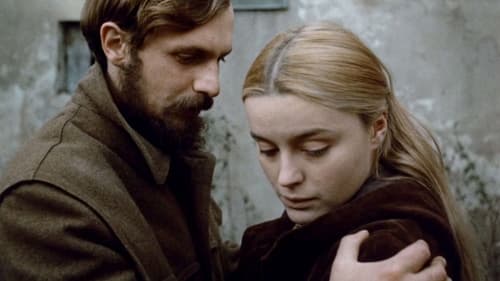
Father
This film, chronicling the last days of Czech resistance fighter Maruska Kuderikova (played by Magda Vasaryova), is based on her diaries. Though she was tortured and eventually executed by the Nazis, her diaries indicate that she was optimistic for the humanity of her captors and did not by any means hate them. Told with simple dignity, this film makes clear why Maruska became a national hero.
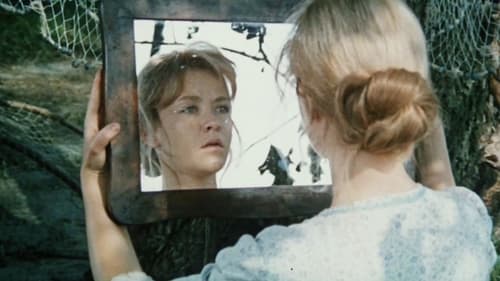
Jánoš Gabay (voice)
Un pescador salva a una mujer de morir ahogada y se la lleva a su casa. Allí se convertirán en amantes, pero la esposa del pescador parece sentirse también atraída por la extraña invitada.

Television film, based on Rudolf Jašík's novel of the same name, tells the story of a blind boy rejected by his own family.
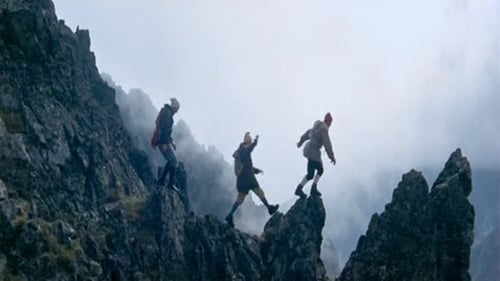
Prasivec
A dramatic story of three friends happily spending time on their own in a mountain cottage in the High Tatras. On the arrival of the wife of one of them their perfect friendship is put to a test.

The film is a historic parable about the topicality of revolution. 1514. The peasants' uprising is over, Dózsa has been arrested. Werbőczy tries to get the imprisoned peasant leader deny the revolution and offers him the lives of his people in exchange.

Hübschmann (voice)
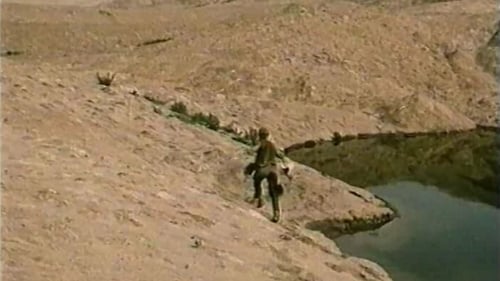
Bergman (segment "Zbehovia") (voice)
An apocalyptic story of three wars in three film tales encompassing the end of the WWI,WWII, as well as a vision of the world destroyed by nuclear weapons. This film was honored at the film festivals in Venice and Sorrento. Immediately after that the copy with Italian subtitles was locked in a safe as evidence of the anti-communist activities of the director, who used real footage of the Soviet invasion.


Vladimir
En una pequeña ciudad de una región montañosa, aún vibrante de recuerdos de la guerra de la Resistencia, un hombre joven y elegante, Boris, llega y se mezcla en la conversación de los bebedores de una taberna. Estos evocan la desaparición de un llamado Jean en el transcurso de una misión peligrosa. Boris pregunta por la casa de Jean, donde viven juntos sin contacto con el mundo exterior su mujer, su hermana y criada quien solamente sale para las compras indispensables. Las tres mujeres, que la soledad las vuelve neuróticas, se dedican a juegos extraños…

Commander of executions
Seven people waiting for their death. A group of assasins - three men and two women - and Gypsy thief spend their time in prison to be tucked up.

A lyrical story about first love, death and disappointment, based on a poem of the same title.

A dramatic story about two friends - fisherman Richardus and municipal executioner Emil Targo takes place at the river Danube, in places that used to be targets of Ottoman raids. But their attraction to the same woman and Emil’s betrayal change their indissoluble friendship to an equally strong hatred. And as it usually goes - after twenty years by a trick of fate Richardus’ daughter Agajka becomes the wife ofthe sun of his sworn enemy.

Ján Flórik

A bricklayer, Jozef Haviar, decides to live with his family on the small farm of his father through the difficult years of the economic crisis. But on his return to his father's house he gets into a conflict with his brother. The life-and-death conflict between the two brothers documents the difficult situation of Slovak country life in the 1930s, the time of economic depression.

Korba (voice)
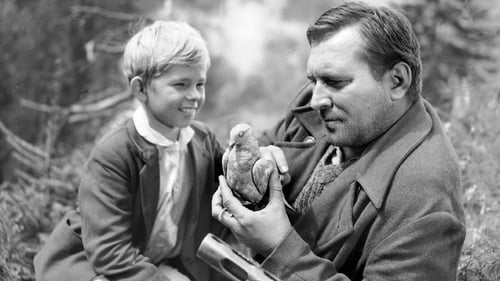
An unusual children's film set during World War II in Czechoslovakia, this compelling drama unfolds five different segments that present the war through the eyes of three youngsters. The three have a series of adventures which include saving a soldier from being captured by the Germans, helping out the resistance fighters, and meeting up with a young Russian woman trained in guerrilla warfare. As they learn more about life and danger, various circumstances constantly recall the reality of war itself. The title comes from a wounded pigeon under the care of one of the youngsters.

Officer

Matej Frujak
Drama about the rebellion of the Trencín Infantry Regiment against its superior officers in the Serbian city of Kragujevac, at the end of the First World War. It was the biggest and deadliest rebellion in the Austro-Hungarian army.

Episodic film consisting of three satirical shorts ('Smutný káder', 'Typický prípad' and 'Vel'korysá kampaň') comically exposing the shortcomings of society. In the interval between each short, a committee recognising themselves in the characters on screen, voice their approval or disapproval of each film.


Slovak movie is based on the novel by the prominent representative of Slovak prose František Hečka, who was in 1952 awarded the State Prize. The novel and the movie successfully capture the development of Slovak village after the liberation in 1945. The narrative is centred around the characters of the old Púplava, who after the liberation begins to organise a new village life, and his struggle for the construction of settlements Mrzáčky, burnt by the fascists. It is centred around the conflict, greatly reflecting the situation of the countryside at this time: the conflict between the rural poor and the rural rich. In the movie, a rich personal and emotional life of other heroes pulsate besides the main storyline. The movie ends with the final defeat of the reactionary forces by Communists in February 1948, taking over all power in the state of workers and peasants. - "The Wooden Village" is released in celebration of the 7th anniversary of the Communist February Victory.


